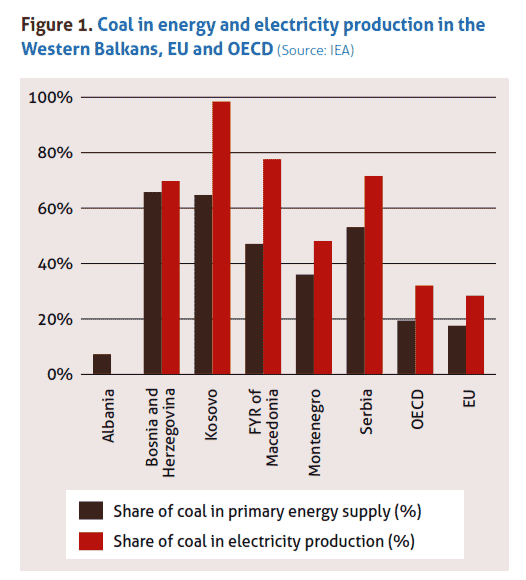This report by CAN Europe the implications of the Energy Union Framework for the Western Balkans and proposes improvements to the existing cooperation tools between the EU and its friends in the immediate neighbourhood. We look at the Energy Community, the EU accession negotiation, the Berlin Process and the COP21.
 It highlitghts that:
It highlitghts that:
- The energy system in the Balkans is currently heavily reliant on coal. About 6 GW of additional coal power capacity are planned to be built by 2030.Existing plants are old and pollute heavily. Health costs of air pollution are responsible for about 20% of national GDP in the region, on average.
- New coal power plants have caught interest of mostly Chinese investors.Coupled with the lack of diligence by the local and national governments, this raises doubts whether the plants will be in line with the EU norms when it comes to environment, climate but also state aid.
- The Energy efficiency potential is the largest in Europe, and significant financing is available but not used up.Energy poverty is another major problem, limiting opportunities for households to benefit from such incentives.
- 2015 offers a number of opportunities for a transition beyond coal in the Balkans.The shift can be brought by progressing on the enlargement process, the ongoing reform of the Energy Community Treaty on energy-related cooperation with the region, and countries’ expected contributions to a new climate agreement to be signed in Paris in December. These opportunities should not be missed, for the well-being and prosperity of citizens in both the Western Balkans and the EU.
- The EU should use its influence to avoid carbon lock-in of the region, which will likely be fully integrated with the EU by 2030. Enhanced cooperation with its strategic partners will bring the EU multiple benefits.
- The Energy Union framework, which calls for strengthening of the external dimension of EU energy policy, can provide the much needed boost for the EU’s involvement in the region.It has offered many avenues for advanc-ing cooperation in the field of energy, including strengthening of the Energy Community Treaty. Further work is needed to accelerate the EU integration process and make it more transparent. Finally, the EU should push the countries to submit ambitious climate pledges ahead of Paris.
Download Beyond Borders: How Energy Union can turn the tide against coal in the Western Balkans



